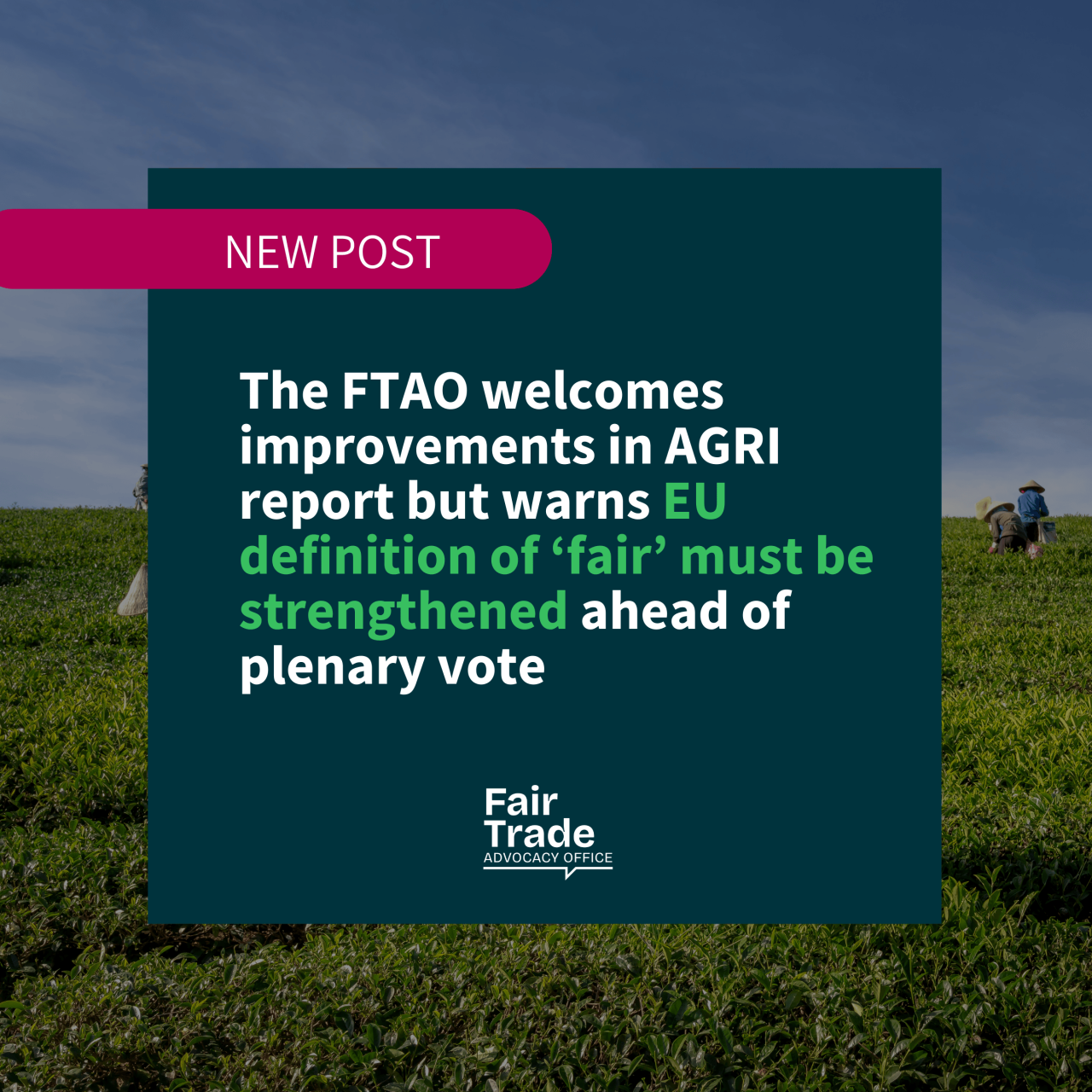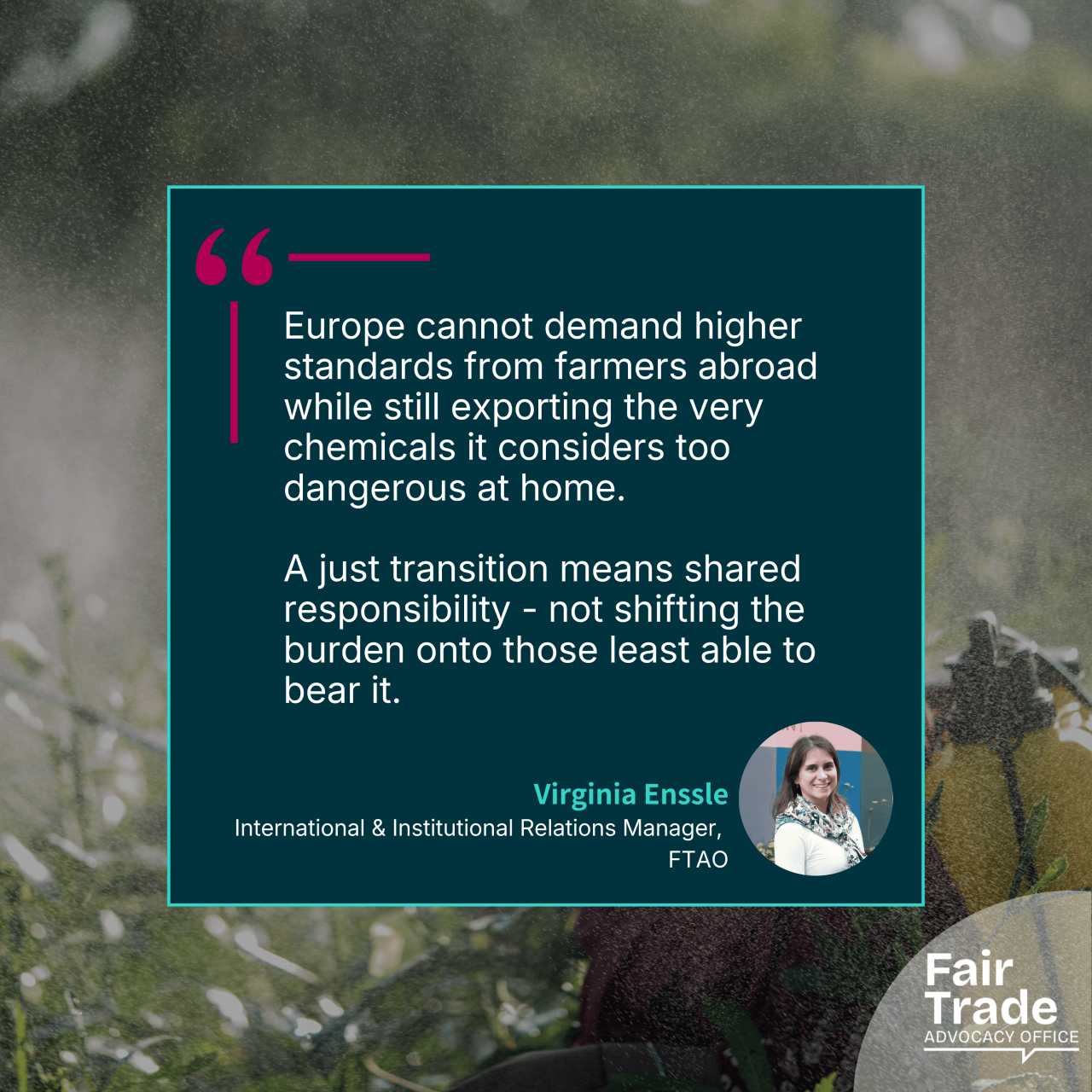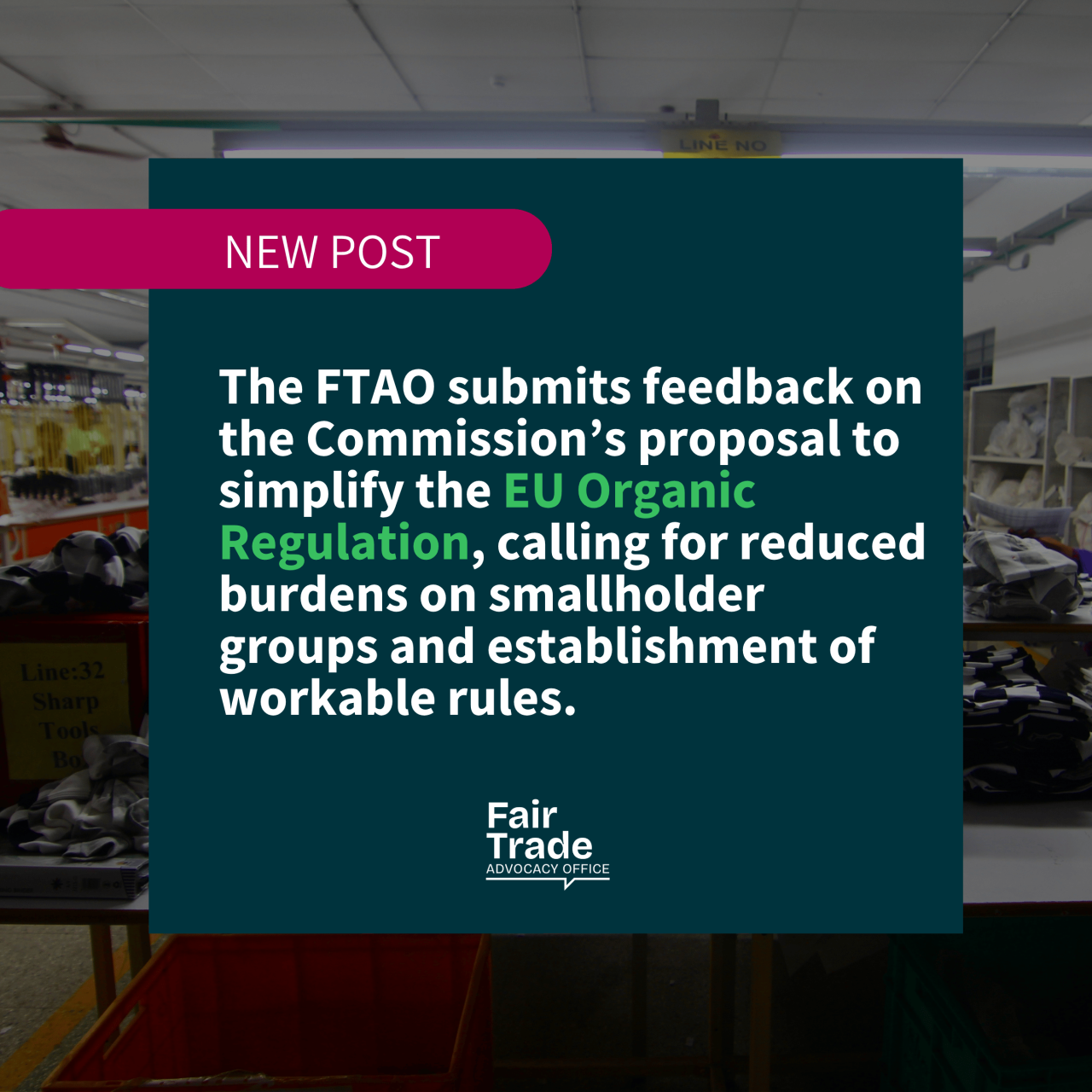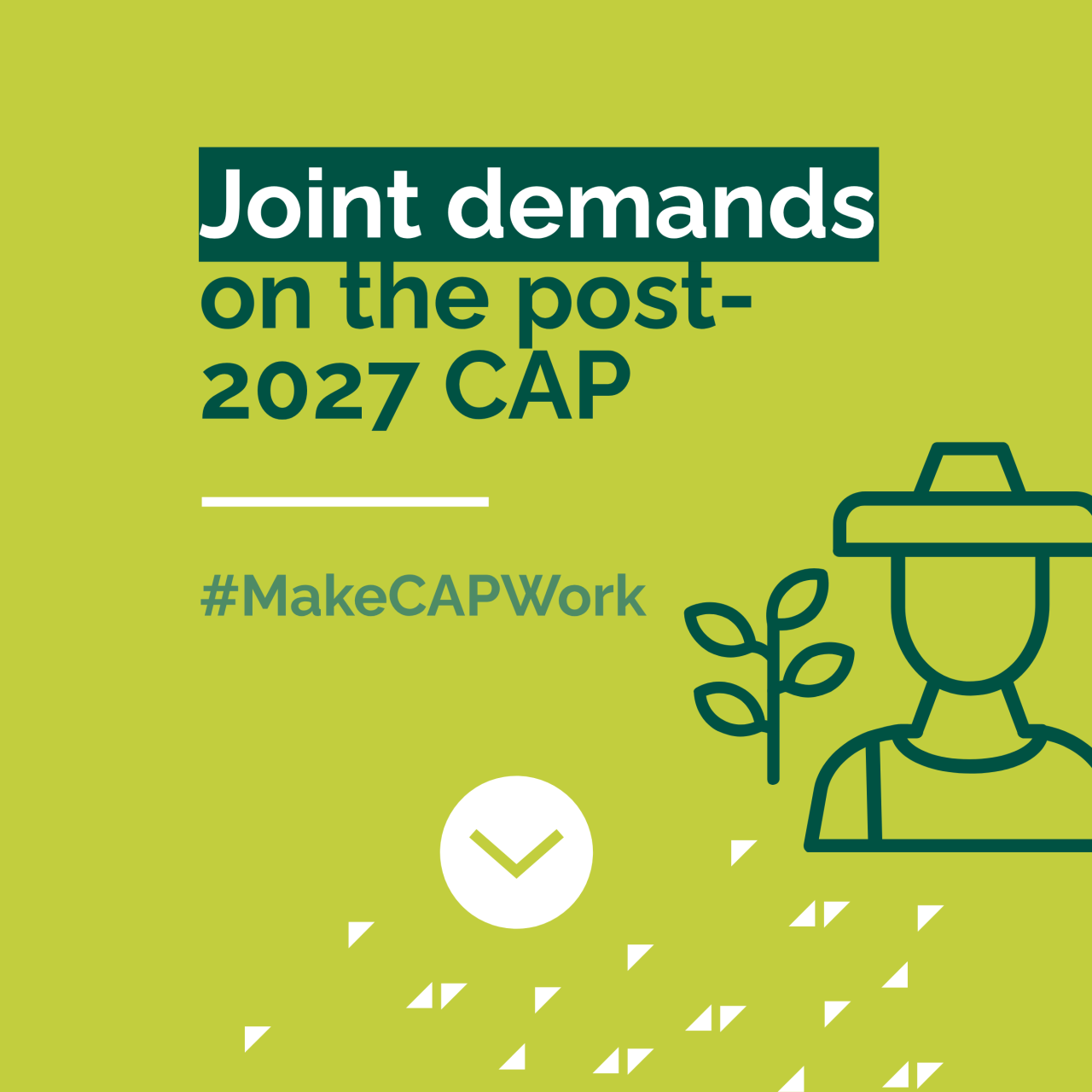The FTAO welcomes improvements in AGRI report but warns EU definition of ‘fair’ must be strengthened ahead of plenary vote

The Fair Trade Advocacy Office (FTAO) welcomes the effort undertaken by the AGRI Committee to improve the European Commission’s (EC) proposal when it comes to the article defining the criteria that a given commercial scheme must fulfil to use the terms ‘fair’, ‘equitable’, or equivalent. In spite of these efforts, the regulation remains problematic and, from the FTAO perspective, risks creating misleading claims and downward pressure on existing Fair Trade standards, which in practice would mean more challenges than opportunities for farmers.
Despite positive improvements, the FTAO warns that the article on Optional terms for commercial modalities, which defines a set of criteria for the use of terms like ‘fair’ or ‘equitable’, risks incentivising companies to put in place schemes that claim to be fair while actually offering farmers less advantageous conditions than those that Fair Trade movement actors are currently applying.
The FTAO welcomes the AGRI Committee’s efforts to increase the precision and ambition of the EC proposal, particularly regarding the criteria that schemes must meet. In particular, the FTAO supports the clarification that prices must not only be considered ‘equitable’, which is an undefined term, but also ‘remunerative’, which, from the FTAO perspective, must be interpreted as ‘covering at least the cost of production’. Delegated acts will be needed to ensure a proper interpretation and implementation of this term.
In spite of the positive amendments adopted by the AGRI Committee, the FTAO highlights three essential elements that must be improved for the legislation to deliver its intended purpose of promoting ‘fair’ and ‘equitable’ schemes. The FTAO calls on Members of the European Parliament (MEPs) to amend the AGRI report ahead of the plenary vote by:
-
Setting an objective and not a subjective criterion when assessing what is a ‘remunerative price’
The AGRI report, as adopted today, includes within the conditions for a scheme to claim to be ‘fair’: ‘a price considered equitable and remunerative by participating farmers for their products’. This wording implies that the participating farmers are the ones who decide whether a price is remunerative. Given their structurally weaker position in the supply chain, farmers would feel pressured to declare prices “remunerative” in order not to lose a client claiming to be ‘fair’. The very problem this regulation seeks to address — farmers’ weak bargaining position — makes this subjective approach unsuitable.
The FTAO calls on the EP to amend the article so that it reads:
‘an equitable and remunerative price for participating farmers, determined through transparent and verifiable methodologies, taking into account the indications provided by the European Agri-Food Supply Chain Observatory (AFCO)' -
Clarifying how control systems will be established
The FTAO regrets that the adopted report does not include an article specifying how control systems will be established. Without clear rules on who verifies that only truly fair schemes can claim to be fair, there is a high risk of unreliable claims reaching consumers.
The FTAO recommends MEPs amend the regulation to state clearly that:
Economic actors using the term ‘fair’ on the packaging of products must commit to and bear the costs of certification with fair trade labels or guarantee schemes. These labels or guarantee schemes must be recognised and verified by the Commission and the Member States. Economic actors shall take part in awareness-raising and education on sustainable patterns of production and consumption. These requirements shall apply in an equivalent manner to Union products and those from third countries. -
Avoiding the exclusion of schemes that prioritise higher prices over premiums
While premiums are often part of the Fair Trade toolbox, some schemes focus instead on offering more favourable prices rather than additional premiums. The FTAO consequently regrets that the AGRI report introduces the ‘payment of an additional amount to the producer, in particular to fund joint projects’ as a condition to claim to be ‘fair’, since this wording would exclude schemes that rely on higher prices instead.
The FTAO consequently calls on MEPs to amend the AGRI report ahead of the plenary vote as follows: ‘payment of an additional amount to the producers, in particular to fund joint projects; except in cases in which the scheme can justify that it is in the farmers’ advantage to receive the full remuneration through higher prices instead of premiums’.
The FTAO reminds the European Parliament that the use of the term “fair” (and its translations in the different European languages) is associated with a distinct set of practices and principles separate from those linked to other similar terms. These practices have been developed over years of experience by the economic actors within the Fair Trade movement. The FTAO is concerned that setting an EU definition below the standards already applied by economic operators within the Fair Trade movement risks negative consequences. It may encourage lower-standard operators to use the term ‘fair’ in their communications, misleading consumers and displacing economic players who adhere to higher voluntary standards.
The Fair Trade movement has already defined ‘fair trade’ within the International Fair Trade Charter, supported by over 250 organisations, including economic operators and civil society organisations. The FTAO recommends aligning with the vision outlined in this Charter and ensuring consistency with existing legislative developments at the EU level, such as the French legal framework.
You can read our proposed amendments to the AGRI Committee's report in detail here.
Get in touch
For more information, please reach out to our Managing Director, Jorge Conesa, at conesa@fairtrade-advocacy.org
More From The Workstream

Fair Trade Movement calls on EU to adopt a just, global phase-out of Highly Hazardous Pesticides

The Fair Trade Movement welcomes amendments proposed by the European Commission to group certifications in the EU Organic Regulation

The FTAO's feedback on the European Commission's proposal for the simplification of the EU Organic Regulation
